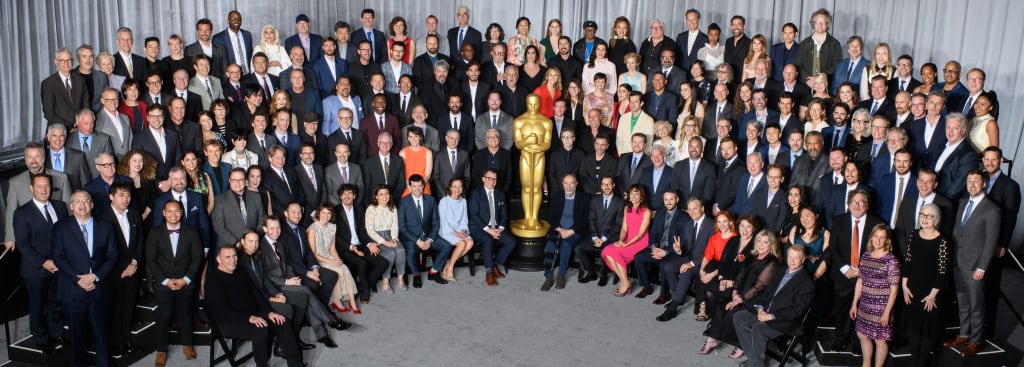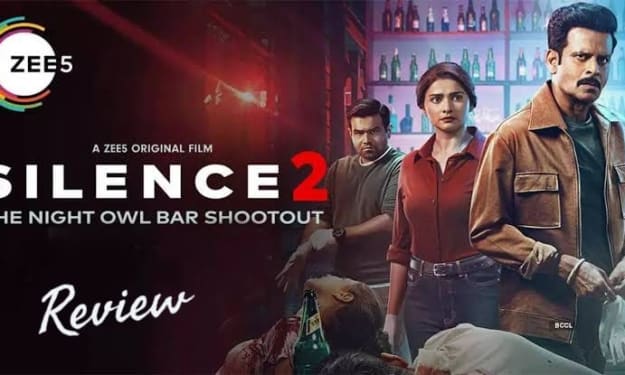Is Arab Cinema Poised to take Over the World?
There’s no better time than now to look beyond the monopoly over awards to expand our horizons.

It’s Oscars season once again. The nominees have been announced, debates are running rife over who was snubbed and who was undeserving of their nomination. But there’s probably no better time than now to look beyond the Hollywood monopoly over these awards and expand our horizons.
At a time when the lack of recognition for women in media is at the forefront, it’s almost surprising that a woman director from the Arab World has been nominated in the Foreign Language Film category for the 2019 Oscars. Capernaum by Lebanese director Nadine Labaki is the only feature film in this year’s Oscars to have a woman at the helm, a shocking statistic in itself.
Media is invested in projecting a singular view of the Arab World, including the United Arab Emirates. That viewpoint doesn’t take into account the burgeoning art scene that has developed over the past decade.
For close to 15 years, December in Dubai was synonymous with cinema because of the Dubai International Film Festival (DIFF). While celebrities may have attracted global attention, the real work of DIFF was as a platform for Emirati and Arab cinema.

Masoud Amralla Al Ali (Credit: self)
One of the people who helped place DIFF on the map was former Artistic Director Masoud Amralla Al Ali. Masoud came onboard in 2004, and was part of the annual event till its transition in 2018. Though he is no longer attached to DIFF—when we spoke, he was unable to confirm whether DIFF would indeed return in December 2019 as has been promised on their website—Masoud remains positive about the future of Arab cinema.
I caught up with Masoud over the phone to talk about his love of films and the lasting impact he’s had on the Arab film industry.
On Entering the Cinematic Scene in the Arab World
In this part of the world, to go into this field is very difficult, especially in my era when cinema was mostly forbidden. I remember I used to go with my father to the movies and since then, the image and the light—the shadows—stuck in my mind.
I studied media in the United Arab Emirates university. At that time, I was writing poetry. I wrote for years but when I started studying, there was a class on ‘introduction to filmmaking.’ For that course, we had to do a short film. When I put my eye to the camera, and there was a subject to shoot, I realised the importance of image. For years I kept writing images, when I could have shot images.
So, I decided to make my own films—that was in the early 90s—I did a short film [Al-Rumram] that I took to so many film festivals around the world.
On Creating a Film Community in the Gulf

Photo by Timothy Eberly on Unsplash
I started making more movies—documentaries mostly—till 2000, when I saw that I was making my films alone in the UAE. I thought that, why don’t I make a gathering for movie lovers in Abu Dhabi—back then I used to work in The Cultural Foundation in Abu Dhabi. Through them, I established a small film competition, which, actually was the seed of everything that’s happening today in the UAE [cinema scene].
That small gathering, called the Emirates Film Competition (EFC) [started in January 2002] started to make a community—a big community of filmmakers, that you can see today. The big names in films from the Gulf countries are graduates—I call them that because it [EFC] was like a university—of that competition.
On Working with DIFF
The Dubai International Film Festival was established in 2004, and they asked me if I would join. I worked as a programmer for three or four years and then I joined them as Artistic Director for 14 years.
Though my commitment with DIFF was as a programmer, I didn’t want to programme non-Arab films. For years, I’ve been visiting film festivals and making connections [and] I know almost everybody working in the Arab film industry. So, I was programing the feature films in DIFF, along with the sections for Emirati films, and films from the Gulf.
For the third edition, I suggested we do a competition for Arab cinema—the Muhr Awards. I got the approval for it, and that was the first Arab competition in the Middle East for films only from Arab countries.
That [put a spotlight on the] importance of Arab cinema and creating content, and discovering talent. I think, during the past 20 years, my job was discovering talents, helping Arab filmmakers, and local filmmakers, to achieve their goals. I dedicated all my time and effort for others to make their films.
I think today, Arab [filmmakers] are achieving a lot after the support they’ve received. And most of the Arab Film Festivals are going down the same route as DIFF—they are creating initiatives and helping the industry, and in screenplay development. So many things are happening in the footnotes of DIFF.
On Arab cinema success stories
So many names! I remember how they started and then became well-known. For example, the Saudi filmmaker Haifaa al-Mansour. I remember when she came with her first short film—we can’t call it a film, even. It was like a short video that was in the Emirates Film Competition in Abu Dhabi. And gradually, she became a very well-known filmmaker, with Wadjda and Mary Shelley, her latest film.
Wadjda started in the Gulf Film Festival as a treatment. And then, we developed it with Torino FilmLab, then it went to Sundance Film Lab, and at the end, the film was made and it was her big breakthrough into international cinema. It was nominated for the Spirit Awards, and also the BAFTA. It’s great to see a project which started with two lines, and how it ended up. Now she’s one of the names that’s representing the Arab World.
Many filmmakers who came to DIFF and EFC, they really started with short films and now they’re very well-known filmmakers, like Annemarie Jacir [Wajid] and Shereen Diabes [Make a Wish]. From the local [UAE] industry, almost everybody today started with EFC—Ali Mostafa [City of Life], Nayla Al Khaja [Malal], Waleed Al-Shehhi [Dalafeen]; writers Mohammed Hasan Ahmed and Khalid Al-Mahmood. There are so many who I’m proud of.
On the Importance of Cinema Today
I think it’s more important than the day it was invented. Today we are living in the ‘image life’—everything we do, we do it with images. As an Arab, we used to write texts, poetry, books; the history of Arabs was never related to image. It was forbidden—paintings were forbidden—that’s why you don’t see ancient pictures like what you see today of Arab history.
The medium of the camera is powerful. And with documentary, it’s like a bullet in the head. It creates dialogue between people, it opens the hidden language or hidden aspects of each society.
As an Emirati, living in a conservative society—others don’t know how we live, they don’t go inside our houses, don’t know how we eat, how we treat our wives or kids—cinema can open this up. When you watch it in a film, you know how a society is living.
I’ve seen hundreds of thousands of films, and I’ve learned from India, from Japan, from Sweden, all through films and the filmmakers I have loved and watched for years. So, I think it’s a great medium of communication in the world today.
On DIFF’s Absence Having an Effect on Arab Cinema

Dubai International Film Festival-2010 (Credit: The AIRSCREEN Company/ Christian Kremer)
DIFF was a very important festival for Arab filmmakers, they were waiting for this festival every year, to watch, and to share, and to make deals. There are other platforms in the Arab World, where they’re doing the same as DIFF, and filmmakers will still have support, not as DIFF used to give.
There is Cairo [International Film Festival], El Gouna [Film Festival], Carthage [Film Festival] which used to be one of the greatest film festivals; [International Film Festival of] Marrakech, so there are other festivals which are covering for the absence of DIFF. Still, it’s a pity if DIFF is not there, though I’ve read everywhere that it will be.
Masoud is planning to go back to his first passion. While he continues to supervise scripts, he has his eye on producing and directing his own films once again. After more than two decades away from creating his original work, we wish him all the best.
In the meantime, new platforms have already emerged to help the next generation of Middle Eastern filmmakers. The Sharjah Film Platform debuted in mid-January, while the Arab Film Centre celebrates five years later this year.
About the Creator
Monita Mohan
When not dreaming of a one-way trip to Coruscant, I'm usually staring at a blank page, hoping my articles write themselves.
Website: lightspeedwriter.wordpress.com
Twitter: @Monita_Mohan






Comments
There are no comments for this story
Be the first to respond and start the conversation.